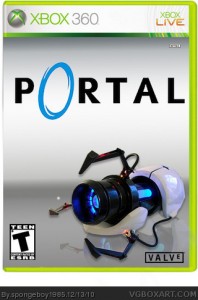 It occurs to me to state for the record that I did finally finish playing Halo 3. A few weeks ago, I guess? I forgot it was a noteworthy event, as it happens. The Halo games, as you may or may not be aware (but probably you are), chronicle a three-way war between humans (led by Master Chief, a genetically improved guy in a big metal powersuit), um… a confederation of aliens that I distinctly recall having a name that escapes me at the moment (led by religious fanatics), and the Flood (about whom the less said the better in the unlikely event that you care about spoilers for a game that is almost a decade old). The war is fought in a variety of places, but mostly on giant terraformed rings called Halos which figure prominently in the fates and histories not only of the aliens and the Flood, but of the galaxy itself.
It occurs to me to state for the record that I did finally finish playing Halo 3. A few weeks ago, I guess? I forgot it was a noteworthy event, as it happens. The Halo games, as you may or may not be aware (but probably you are), chronicle a three-way war between humans (led by Master Chief, a genetically improved guy in a big metal powersuit), um… a confederation of aliens that I distinctly recall having a name that escapes me at the moment (led by religious fanatics), and the Flood (about whom the less said the better in the unlikely event that you care about spoilers for a game that is almost a decade old). The war is fought in a variety of places, but mostly on giant terraformed rings called Halos which figure prominently in the fates and histories not only of the aliens and the Flood, but of the galaxy itself.
In this game, a first-person shooter like the others, you control the Master Chief as always, and up to three other players in co-op play, which at the time was pretty new. Other games have made good roads into that space in the meantime, but, that’s how it goes. And you continue to fight against the other two sides of the war and try to save the galaxy and all. Also, there’s some pretty fantastically customizable multiplayer components to the game.
Despite the disinterested tone of the review, it really is a great game. It doesn’t have quite the strength of storyline of Halo 2, but the game play is equivalent and probably improved, so, decent tradeoff. If it weren’t for the fact that the game play in the original game was iffy, I could unreservedly recommend the whole trilogy as a pretty good sci-fi yarn wrapped around finding a bunch of guns and using them to kill things. Which, I mean, they’re aliens. That’s why they’re on the screen!
 Check me out, I finished my second PS3 game! This was more of an ongoing thing, since it is not at my house and I don’t own it. But still! Definite fun times. In
Check me out, I finished my second PS3 game! This was more of an ongoing thing, since it is not at my house and I don’t own it. But still! Definite fun times. In 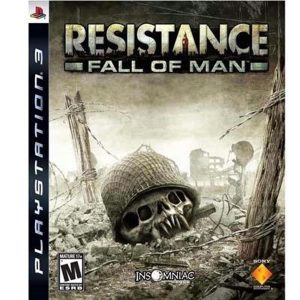 After long delays[1], I have finally gotten a PlayStation 3, what with the Blu-Ray playing capabilities and all. Resultantly, I also snagged one of the handful of PS3 exclusives that also looked in any way entertaining. And even more surprising than all of this combined, I finished the damn thing. It’s ever so slightly possible I may play through again, because there are lots of pieces of paper with more storyline that I missed and new weapons to kill the alien/zombie hybrid things with. In realism land, I won’t. But I might, and that’s a piece of shock in itself.
After long delays[1], I have finally gotten a PlayStation 3, what with the Blu-Ray playing capabilities and all. Resultantly, I also snagged one of the handful of PS3 exclusives that also looked in any way entertaining. And even more surprising than all of this combined, I finished the damn thing. It’s ever so slightly possible I may play through again, because there are lots of pieces of paper with more storyline that I missed and new weapons to kill the alien/zombie hybrid things with. In realism land, I won’t. But I might, and that’s a piece of shock in itself.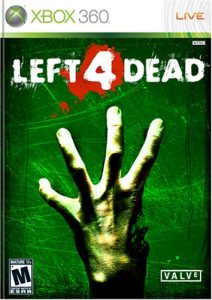 These past several Mondays, my regular game of Halo 3 has rapidly and with a feeling of potential permanency changed to a new game.
These past several Mondays, my regular game of Halo 3 has rapidly and with a feeling of potential permanency changed to a new game.  It only took me, what, 8 months to finish
It only took me, what, 8 months to finish 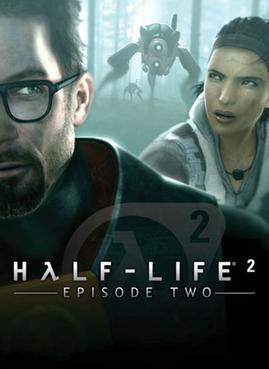 Most of my video game time[1] lately has been spent perusing
Most of my video game time[1] lately has been spent perusing 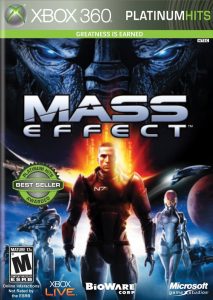 One sign of an extremely good video game is that it would be almost easier to describe it as a movie and leave out the game elements entirely. Well, okay, that may not be true. But if the reason you want to leave out the game elements is that they were so seamless and non-intrusive that you only very occasionally even felt like you were playing something instead of watching it and influencing the outcome, that would be good. It would also be a good sign if your father, no stranger to games even if he’s not the gamer type, were to ask you after watching the last 15 or 20 minutes of the game to clarify that it was in fact a game, and not a movie.
One sign of an extremely good video game is that it would be almost easier to describe it as a movie and leave out the game elements entirely. Well, okay, that may not be true. But if the reason you want to leave out the game elements is that they were so seamless and non-intrusive that you only very occasionally even felt like you were playing something instead of watching it and influencing the outcome, that would be good. It would also be a good sign if your father, no stranger to games even if he’s not the gamer type, were to ask you after watching the last 15 or 20 minutes of the game to clarify that it was in fact a game, and not a movie.